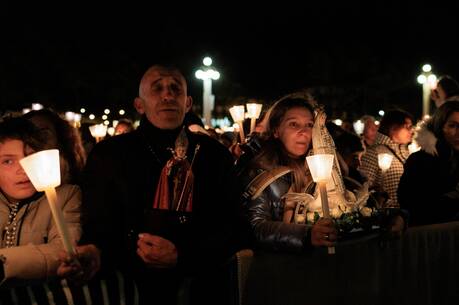They came down from the mountains surrounding the city; they came from faraway villages in other parts of Mexico and Guatemala. They came by bus, by car and taxi; they walked into town on their own two feet.
They came and waited overnight in the cold and then in the morning under a punishing sun. Those thousands who were turned away from the Mass itself waited for hours alongside the roads; they waited pressing against metal barricades surrounding the ZÓcalo, crowding around the cathedral nearby for tiny precarious vantage points; they waited with ailing children for a hoped-for moment of Francis’ touch.
It is hard to overestimate the impact of the spectacle of Pope Francis visiting a community like San Cristóbal de las Casas in Chiapas, Mexico. Just a few months after visiting with the most powerful people in the world, he has come to the ends of Mexico to meet with perhaps the most marginalized people in Mexican society. The indigenous communities here have been denied their land, denied their culture and denied their languages—often by the church itself. But Francis came here today as hermano, a brother, as pockets among the crowd chanted.
For one small family who managed their way through the crowd at the urging of others around them, desperate hopes were realized with great bounty. A small disabled girl, pushed to the front of the dense crowd first by her mother and father and then by everyone around them who saw what they were trying to do, was finally lifted over the metal barricade and brought out into the square before the cathedral. As Pope Francis drew near, the people around the little girl called out to him and gestured to the girl. Their hopes were not disappointed as the popemobile slowed to a stop and the little girl in pink was lifted from her wheelchair and brought to the pope. He embraced and blessed her as the crowd roared in approval.
Just a few hours earlier, the pope had told the indigenous people who had gathered to celebrate Mass with him in the city’s stadium, “Some have considered your values, culture and traditions to be inferior. Others, intoxicated by power, money and market trends, have stolen your lands or contaminated them.” “You have much to teach us,” Pope Francis said. “Your peoples, as the bishops of Latin America have recognized, know how to interact harmoniously with nature, which they respect as a source of food, a common home and an altar of human sharing.”







